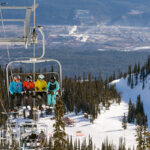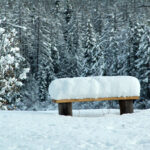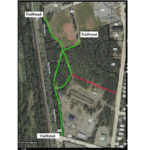Home »

Are forest fires a signal of worse to come?
Op-Ed Commentary
As the forest fire tragedy continues to unfold in the St. Mary’s Valley and elsewhere, it’s hard to avoid thinking about the future, a bleak prospect indeed.
Forest fires are universal now through the entire world. In northern B.C., the monster 12,000 sq. km. Donnie Creek fire, the biggest in the province’s history, will likely burn until the snow flies and start again in the spring as fires of that mammoth size are prone to do.
That’s not a comforting prospect in a world where every summer seems hotter than the last and in some jurisdictions like California forest fire “season” has become a year-round calamity.
In places like northern Alberta, it’s not quite that bad yet. But “yet” is the operative word when you consider that the horrific Fort McMurray wildfire of 2016 broke out the first week of May and destroyed hundreds of homes before the official forest fire “season” even started. (BTW, B.C. “Golden Spruce” author Jon Vaillant’s latest book, “Fire Weather, The Making of a Beast,” will scare the hell out of you about the global danger posed by wildfires. I urge you to read it.)
So how hot is it getting?
During the past week, NPR reported an ocean temperature of 101.1 F (38.7 C) in Manatee Bay just off the Florida coast. Another recent report by IFL Science said the temperature didn’t drop below 120 F (48.8 C) at midnight in Death Valley before climbing again, and the World Meteorological Association says temperatures in recent years have reached above 100 F (38 C) in both the Canadian and Siberian Arctic calling it “the latest in a string of “alarm bells about our changing climate.”
And the WMA is adamant that extreme climate changes like this are human-induced and not natural.
Given this, surely anyone disbelieving in human-caused climate change now is living in La La Land and taking their scientific direction from the Easter Bunny!
Meanwhile, some 15,000 sq. km. of forest has burnt in B.C. since April making this the worst fire season on record before it’s even half over. Nor do the computer models look great for the rest of the summer, says Cliff Chapman, BC Wildfire Service Director.
July and August are typically B.C.’s “core fire season,” and computer modelling for the rest of the summer suggests higher-than-average temperatures and below-average rainfall across much of the province, Chapman says.
Where does this leave us? Facing another hellish, smoke-filled wildfire season for sure.
I was thinking about this a week ago when I drove down to Moyie Lake to cool off in the lake. Driving over the Moyie River Bridge north of the lake, I could not help but notice the creek bed was completely dry. The dried-up creek bottom did not come as a big surprise because it usually runs dry most summers. But drying up in mid-July did surprise me because the creek doesn’t usually disappear until August.
Not a big deal maybe, but then again, I noticed this week that the triangular-shaped snow patch just below the summit of Mount Fisher is almost gone now and has broken up into patches. I watch those patches closely every year and I can tell you that snow on Fisher does not usually disappear until late August or early September before it starts falling again. Now it’s vanishing at the end of July. That’s a momentous change and any climate scientist will tell you it doesn’t bode well for the future.
You may call these changes trivial, but I find them quite ominous. And when global climate changes appear within a human lifetime instead of a thousand-year geological epoch something is wrong. Dreadfully wrong.
Look at it this way. Scientists measure time in epochs and we are now transitioning from the Holocene Epoch – at the end of the Ice Age – to the Anthropocene Epoch where industrialized humanity becomes the dominant force changing the world instead of Mother Nature.
And you know what that means? Billions of automobiles belching carbon dioxide into the air, factories and industrial farming adding methane and greenhouse gases, oceans saturated with plastic, pandemic disease, drought and famine causing mass migrations and eight billion people living dangerously beyond their means straining Earth’s limited natural resources and biodiversity to the breaking point.
Is it any wonder then that mental health and homelessness are now the major pathologies of the age and optimism is running out? Are we on the verge of another mass extinction as the earth has experienced several times before? Some would say we deserve it. Victims of our own greed and self-indulgence.
Humankind is not evil per se, but we tend to be a lazy species and easily ignore thoughts we find unpleasant like climate change. This must change over the next decade, or the Earth will become increasingly toxic threatening the very survival of civilization. Scientists realize this but do politicians and the public?
Sadly, I don’t believe they do. Certainly not the ones supporting the likes of Putin and Trump. They support the coming catastrophe. What about you?
Lead image: Water-skimmers head back for another load after bombing the St. Mary’s River Wildfire last week, with Fisher Peak’s snow-patch already mostly diminished. Ian Cobb/e-KNOW photo
Gerry Warner is a retired (and tired) journalist. But he hasn’t given up yet.








